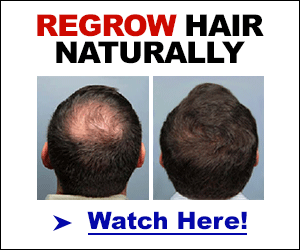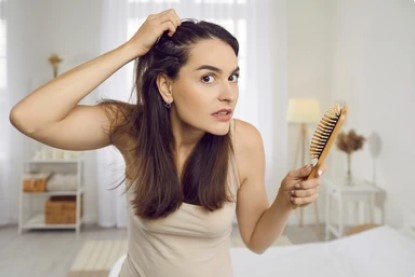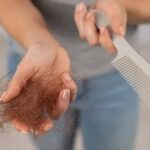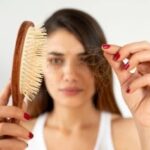hair loss prevention
hair loss prevention, Hair loss is a common concern for both men and women, and it can have a significant impact on one’s self-esteem and overall well-being. While some degree of hair loss is natural, excessive or premature hair loss can be distressing.
The good news is that there are various strategies and solutions available for hair loss prevention. In this article, we will explore the causes of hair loss, effective prevention methods, and treatments to help you maintain a healthy head of hair.
I. Understanding Hair Loss
To effectively prevent hair loss, it’s essential to understand the factors that contribute to it. Hair loss can be caused by various factors, including genetics, hormonal imbalances, diet, and lifestyle. Here are some common types of hair loss:
- Androgenetic Alopecia: This is the most common cause of hair loss and is often referred to as male pattern baldness in men and female pattern baldness in women. It is primarily influenced by genetics and hormones.
- Telogen Effluvium: This type of hair loss occurs when a significant number of hair follicles enter the resting phase simultaneously. It can be triggered by physical or emotional stress, illness, or dietary deficiencies.
- Alopecia Areata: This is an autoimmune condition where the immune system mistakenly attacks hair follicles, leading to hair loss in small, round patches.
- Traction Alopecia: Hair loss due to excessive tension on the hair shafts, often caused by tight hairstyles or hair extensions.
- Medical Conditions: Certain medical conditions, such as thyroid disorders, can also lead to hair loss.
II. Prevention Strategies
Preventing hair loss begins with adopting healthy habits and making informed lifestyle choices. Here are some strategies to consider:
- Maintain a Balanced Diet:
- Ensure you consume a well-rounded diet rich in vitamins, minerals, and proteins essential for hair health.
- Incorporate foods like lean meats, fish, nuts, and leafy greens that provide biotin, zinc, and iron.
- Stay hydrated by drinking plenty of water, as dehydration can affect hair growth.
- Manage Stress:
- Chronic stress can contribute to hair loss. Practice stress-reduction techniques such as meditation, yoga, or deep breathing exercises.
- Avoid Harsh Hairstyles:
- Avoid tight hairstyles that pull on the hair and cause damage.
- Limit the use of heat-styling tools, as excessive heat can weaken the hair shaft.
- Be Gentle with Wet Hair:
- Wet hair is more vulnerable to damage. Use a wide-toothed comb and gently detangle your hair when it’s wet to prevent breakage.
- Use Gentle Hair Care Products:
- Choose shampoos and conditioners that are suitable for your hair type and avoid products with harsh chemicals.
- Limit the use of hair dyes and other chemical treatments.
- Scalp Health:
- Keep your scalp clean and healthy by regular shampooing.
- Consider using a mild anti-dandruff shampoo if you have a flaky scalp.
- Avoid Smoking and Excessive Alcohol:
- Both smoking and excessive alcohol consumption have been linked to hair loss. Quitting these habits can improve overall health.
- Exercise Regularly:
- Physical activity promotes good blood circulation, which is important for hair follicles.
- Hormone Management:
- If you suspect a hormonal imbalance is contributing to your hair loss, consult a healthcare professional for evaluation and treatment options.
III. Hair Loss Products
Several over-the-counter and prescription products are available to help prevent hair loss and promote hair regrowth. Here are some common options:
- Folifort:
- Folifort is a topical medication approved by the FDA for both men and women. It is available in various strengths and formulations.
- Regular application can help slow hair loss and promote hair regrowth.
- Finasteride:
- Finasteride is an oral prescription medication primarily for men. It works by blocking the hormone dihydrotestosterone (DHT), which contributes to hair loss.
- Low-Level Laser Therapy (LLLT):
- LLLT devices, such as laser combs and helmets, use low-level lasers to stimulate hair follicles and promote hair growth.
- Prescription Shampoos:
- Prescription shampoos containing ketoconazole or other active ingredients may be recommended by a dermatologist to treat specific scalp conditions.
- Platelet-Rich Plasma (PRP) Therapy:
- PRP therapy involves drawing a small amount of blood, processing it to concentrate platelets, and injecting it into the scalp to stimulate hair growth.
IV. Hair Loss Prevention Tips for Women
Hair loss in women can be particularly distressing, but there are specific strategies and considerations that may help:
- Hormonal Evaluation:
- Hormonal imbalances, such as polycystic ovary syndrome (PCOS), can contribute to hair loss in women. Consult a healthcare provider for evaluation and management.
- Birth Control Pills:
- Some birth control pills may help regulate hormonal imbalances that cause hair loss. Discuss options with your healthcare provider.
- Hair-Friendly Hairstyles:
- Choose hairstyles that do not stress the hair shaft, and avoid tight braids and ponytails.
- Hair Care Products:
- Use hair care products designed for women that cater to specific needs.
V. When to Seek Professional Help
If you’re experiencing significant hair loss or suspect an underlying medical condition, it’s essential to consult a healthcare professional or dermatologist.
They can conduct a thorough evaluation, recommend appropriate treatments, and address any concerns related to your hair loss.
Conclusion
Hair loss prevention is a combination of adopting healthy lifestyle practices, managing stress, and utilizing appropriate products and treatments.
While it’s natural to lose some hair over time, taking proactive steps can help maintain a healthy head of hair and boost self-confidence.
Whether you’re a man or a woman, there are various options available to address hair loss and promote hair regrowth.
Remember that consistency in your efforts and seeking professional guidance when necessary are key to achieving the best results in preventing hair loss.






